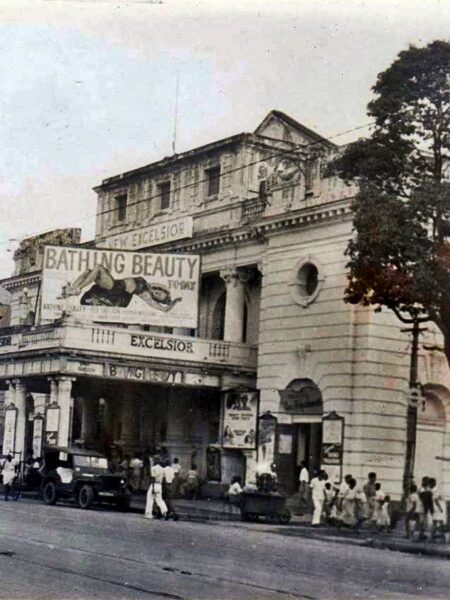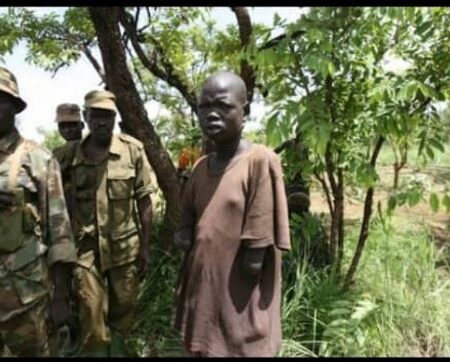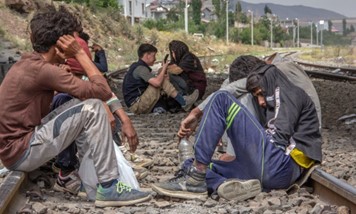INTRODUCTION
From time immemorial, women have organized themselves into groups to foster unity, assist one another and to protect their mutual interests. In precolonial Nigeria, women and women’s organizations played crucial roles in social mobilization through traditional women’s associations, hundreds of market women associations or organizations, women trade and craft guilds constituted themselves into pressure groups and self-help groups to regulate markets prices and thereby brought about order into the economic life of the society at the grassroots. These meticulously organized and well-disciplined economic groups existed in towns and small settlements across Nigeria.
At the beginning of colonialism, women activities began to change. Nigerian women began building on already existing ethno-cultural groups to form formal organizations. Their activities then extended beyond social and economic realms into political activism and partisan politics. These women groups then began to influence government policies imposed on them. They began to fight for franchise for women, educational opportunities for the girl child, property rights etcetera.
WOMEN’S ORGANIZATION IN NIGERIA PRIOR TO THE ESTABLISHMENT OF THE NATIONAL COUNCIL OF WOMEN’S SOCIETIES
According to Olusanya G.O. the formation of formal women’s organization began in Nigeria in 1901 with the establishment of Lagos Ladies’ League (LLL). The League was established by Governor MacGregor and Mrs. Charlotte Obasa and the main objective of the League was to administer quinine to children and combat infant mortality in Lagos, Nigeria. The League influence and power began to diminish by 1908 after the departure of MacGregor and by 1914 the League ceased to exist.[1]
In March 1944, Mrs Funmilayo Ransome-Kuti formed the Abeokuta Ladies Club which was a group of educated women, teachers and traders. At first, the club was involved in charity work, sewing activities and catering later on, the club began to include illiterate market women and the membership of the club expanded. With this expansion, the club began to take interest in the problems of the market women and began to identify themselves with the problems and hardships faced by the market women. By 1946, the name Abeokuta Ladies Club changed to Abeokuta Women’s Union (AWU). With the change in name, the organization began to take on more politically inclined topics and started focusing on women’s rights and freedom for women in Abeokuta. The Union wrote petitions against the Sole Native Authorities and they were able to abolish the flat rate tax imposed on women in Abeokuta.[2]
The educated elites in colonial period found it necessary to build upon the traditional structures as well as utilized with traditional and western protest tactics. This then led to the founding of the Nigerian Woman’s party (NWP) by Lady Oyinkan Abayomi. The NWP was formed to be the women’s branch of the Nigerian youth Movement (NYM). The NWP vociferously supported the enfranchisement of women (including women in the northern part of Nigeria ), the party also campaigned for women’s admission to the police force and protested discrimination against African nurses in favour of European nurses. [3] Women participation in party politics was expedient because of the circumstances in which they found themselves. Their involvement in politics became necessary for them to protect their interest. Apart from being an attempt to negotiate their ascendancy in governance, women were engaged in what has been described as the politics of survival rather than politics of profit because they believed that their economic survival and the welfare of their children was permanently endangered by their continued exclusion from political decisions. Unfortunately political factionism bedeviled their attempts at uniting for non- political purposes, ostensibly because some of the leaders of the women’s groups belonged to different political parties and ensured that their followers toed their political leanings.
FORMATION OF THE NATIONAL COUNCIL OF WOMEN’S SOCIETIES (NCWS)
In an interview with one of the founding members of the NCWS, Professor Felicia Adetowun Ogunsheye, she stated that by late 1940s, there were very strong moves to unify all the women in Nigeria into one monolithic national body, despite their apparent differences. The first major attempt was made by Mrs Funmilayo Ransome Kuti, Abibat Mogaji, Oyinkan Abayomi and Tejumade Alakija with the establishment of the National Women’s council (NWC).[4] Ogunsheye stated that the NWC was created by Mrs Kuti to foster the ideals for women’s development in Nigeria so Nigerian women can participate and influence government decisions and policies . In the 1950s, the NWC movement was particularly interested in universal adult enfranchisement which in practice entailed women’s right to rote.[5] The formation of NWC was a means by which women ensured national integration. The concept of national integration in NWC was an attempt to create an all embracing platform devoid of local or regional political interest and by 1958, NWC adopted a new name, the National council of women’s societies (NCWS) to be a non-partisan and non-governmental organization.

Also speaking on what led to the formation of NCWS, Oladejo M.T mentioned that the revolving state of Nigeria politically was what led to the formation of the organization. Oladejo stated , that Nigeria was already on the verge of attaining independence from the British and Nigerian women needed a strong foot to put forward in order to be able to influence government policies that will aid the empowerment and development of women.[6]
SOCIO-CULTURAL EFFECT OF THE NATIONAL COUNCIL OF WOMEN’S SOCIETIES ON NIGERIAN WOMEN
Ogunsheye stated that a major socio-cultural effect of the NCWS was the unification of Nigerian women under one umbrella. Nigeria, being a country with different ethnic groups, languages, religion, beliefs, etc it was difficult to have a body that will be solid enough to cater for the needs of Nigerian women and influence decisions that will support or be advantageous to all women in the country and this made the NCWS in the early years of its establishment embark on expansion and consolidation to other parts of the country. At the inaugural meeting of the NCWS held on August 12, 1960, a constitution was adopted. The constitution allowed for the establishment of branches of the Council in each region’s that made up the Federation namely east (Enugu), north (Kaduna), west (Ibadan) and Lagos, Federal Capital Territory. The Constitution also prescribed three major layers of operations, namely the national, regional and local level. The national level was composed of the national president, national vice president, national secretary, treasurer and national publicity secretary. The regional branches were expected to mobilize Women’s organizations that were domiciled or were operating within their jurisdiction and to structure them along the pattern drawn up in the organization that was operational at the national level.[7] The core members of the NCWS were (and are) professional women’s organizations, NGOs devoted to some development , market women groups and women’s trade and craft guilds, women representatives at the grassroots and individual women who are not necessarily affiliated to any social or economic group. As a result of the wide spectrum of membership, NCWS was able to network women across all strata of the society, with the professional and NGO groups injecting the necessary expertise needed to champion the cause of women across the country. They also engaged the government on behalf of other women on policies and actions that they deemed inimical to the welfare of women and children .
From 1960 to 1964, each regional branch embarked on social welfare projects. They sent delegations to the regional governments to make laws and take steps that would alleviate the challenges women and children faced, in particular education projects made great strides in 1964-1965 where adult literacy classes were organized for market women as well as sponsoring girls to secondary schools.[8] The NCWS Lagos branch organized fundraisers that caught the attention of international audience .The International Women’s Club in 1964 set up scholarships for a woman student . Eight scholarships were established in Queens College through the National Council of Women of United States. Asides this , in 1966 the NCWS received funds from Eleanor Roosevelt Scholarship Fund from The United States of America and continued its efforts to encourage and sponsor education for women and girls.
For the purpose of women empowerment and training ,the western region of the Council was also able to acquire 20 acres of land from the government of the region for the purpose of building a headquarters, which comprised of a series of buildings, a multipurpose hall to seat 1000 people, two flats for Council offices to let at nominal rates to affiliated organizations, arts and crafts shops , a girl’s hostel to accommodate 100 girls, market and flower gardening and other facilities to women development. With the support of the Government , private individuals and organizations, the foundation- laying of the headquarters/ secretariat building at its permanent site in Samonda Ibadan was performed in 1964 by Sir Ladoke Akintola, the Premier of the region.[9]
The NCWS has organized several conferences and conventions since its inception in 1958. The first national convention held in Lagos from February 22nd to 24th ,1961. It was attended by delegates from the regions with an average of 100 women in attendance . The conferences featured talks on ” education and how it can stimulate Nigerian women to work in the community”. Subsequent conventions in 1963 and 1965 focused on strengthening Nigeria through women and the role of women in the development of Nigeria’s economy. The conventions were attended by delegates from the various regions where the Council had branches.
The Council was recognized internationally as it represented Nigerian women at the United Nations , The Decade for Women Conference in Nairobi, Kenya that was held in 1985. The conference had in attendance 375 delegates of women from nations around the world. In the 1990s, NCWS was represented at the United Nation’s Fourth World Conference on women that was held in Beijing, China in 1995 where the controversial “right to have an abortion” was proposed and later declared that ” the ability of women to control their own fertility forms an important basis for the enjoyment of the other rights” and asserted the right of women and men to have access to all legal methods of fertility regulations.[10]
In 2009, the Council celebrated 50years of its establishment with a Congress and the reincorporation of old NGOs members of NCWS that were estranged . 2015 witnessed a rural fair for rural producers and cottage producers. From 2016 to 2021 several conferences were organized by the Council to support sustainable development and Entrepreneurship.[11]
CONCLUSION
To sum up, several women’s organizations existed in Nigeria prior to the advent of British colonization, these groups were organized mostly for cultural, religious and economic purposes , the colonization on the country led to a shift in the orientation of these organizations from ethno-cultural to political when women began to fight against policies imposed on them by the colonialists.
By 1958, the different women’s organizations unified to form the NCWS. The NCWS since inception have had several socio-cultural effects on Nigerian women from unification of women from different angles and spheres of life to the organization of numerous conventions and conferences that has been held to enlighten and empower numerous women across Nigeria.
BIBLIOGRAPHY
PRIMARY SOURCES
ORAL INTERVIEWS
| Name of Interviewee | Designation | Place of interview | Date of Interview |
| Professor Felicia Adetowun Ogunsheye | Founding member of NCWS | Bodija, Ibadan | July 14th 2022 |
| Dr. Mutiat Titilayo Oladejo | Senior Lecturer, university of Ibadan | Faculty of Arts, University of Ibadan | June 14th, 2022 |
SECONDARY SOURCES
Awe B. Nigerian Women In Historical Perspective ( 1992), Ibadan John Archers Publishers LTD.
Constitution of The National Council Women’s Societies, 1960 Edition. https://developmentgoals.org/Gender-Equality/. Accessed 25- 06 -2022. 4:30am.
Johnson C. (1982) Grassroots Organizing Women in Anticolonial Activities in South Western Nigerian: African studies Reviews
Mba, N. (1982). Nigerian Women Mobilized. Berkley: Institute of In8kternational studies, University of California. p.395.
NCWS Lagos Branch Letters, Ogunsheye Foundation Archives , Ibadan.
Ogunsheye, F.A (2021) A Short History Of The Early Years Of The National Council Of Women’s Societies. Ibadan; Silver-Lining Creative And Innovative Concepts.
Ogunsheye, F.A. (1960) Les Femme du Nigeria Presence Africanize, New Ser.
Oladejo M.T (2019) The Women went Redical, Petition Writing and the colonial state in southwestern Nigeria, 1900-1953; Ibadan Book builders.
REFERENCES
[1] Olusanya G.O in Awe B. Nigerian Women In Historical Perspective ( 1992), Ibadan John Archers Publishers LTD. P.139
[2] Ibid,173.
[3] Ibid, p200.
[4] Ogunsheye F.A, Bodija Ibadan, 14th July 2022.
[5] Oladejo M.T (2019) The Women went Radical, Petition Writing and the colonial state in southwestern Nigeria, 1900-1953; Ibadan Book builders p. 133
[6] Oladejo M.T oral interview conducted in University of Ibadan , June 14,2022.
[7] Constitution of The National Council Women’s Societies, 1960 Edition.
[8] Mba, N. (1982). Nigerian Women Mobilized. Berkley: Institute of International studies, University of California. p.395.
[9] Ogunsheye, F.A (2021) A Short History Of The History Of The Early Years Of The National Council Of Women’s Societies. Ibadan; Silver-Lining Creative And Innovative Concepts. p31.
[10] https://developmentgoals.org/Gender-Equality/. Accessed 25-06-2022. 4:30am.
[11] Ogunsheye, F.A (2021) A Short History Of The History Of The Early Years Of The National Council Of Women’s Societies. Ibadan; Silver-Lining Creative And Innovative . p56.






Good day Dr, hope this message meets you well.
I read about your effort and contributions towards fighting for Women’s Rights well done and wish you success.
My Name is Ma’am Kyari a founder of Associationof social Health Advocates a Community Based organization, abonified Member of NCWS Borno State Chapter.
I personally want to Disscus with you an issues regarding Rights of NCWS Members in my Dear State and way forward.